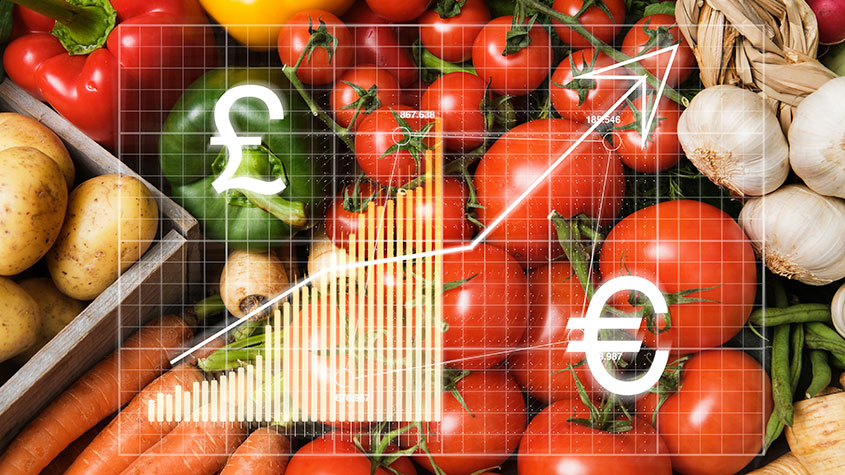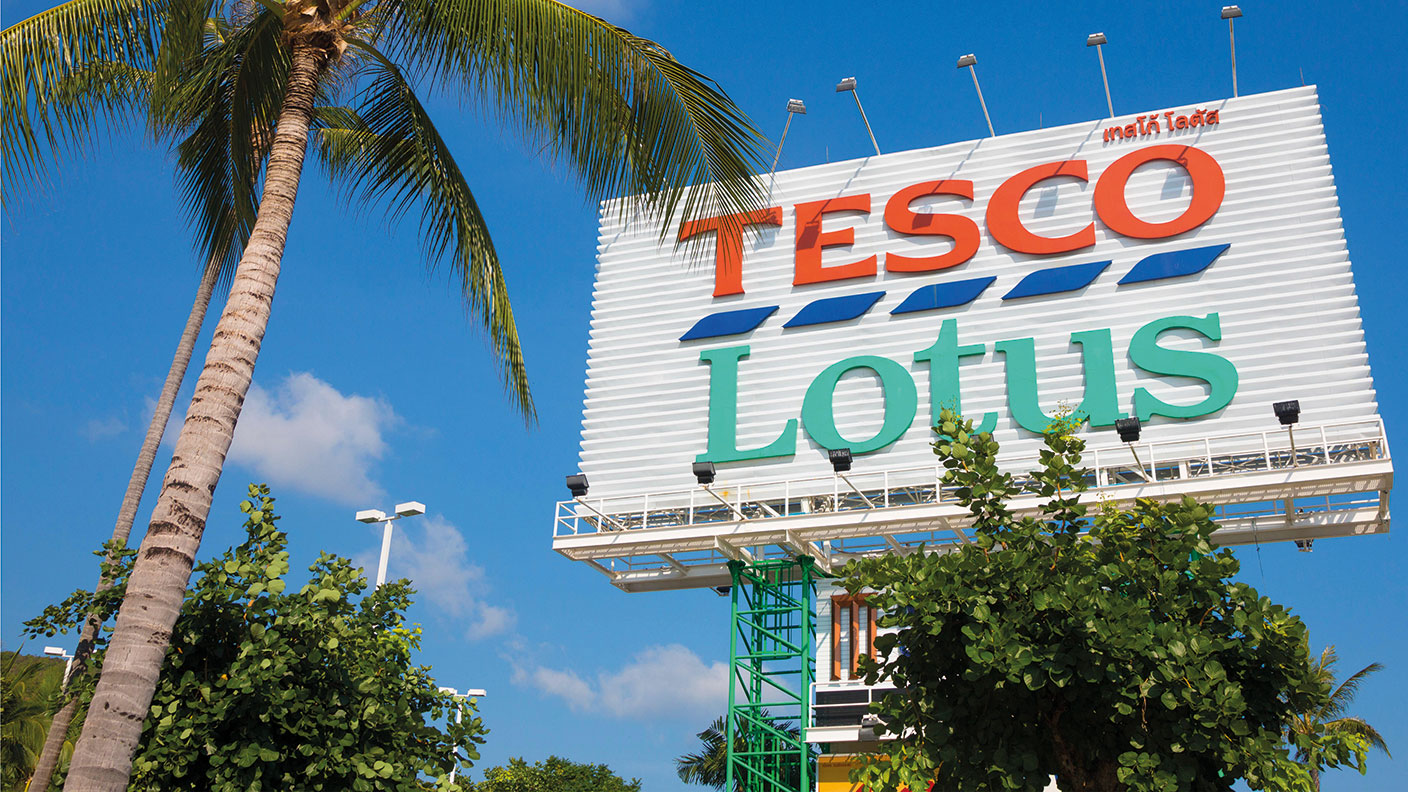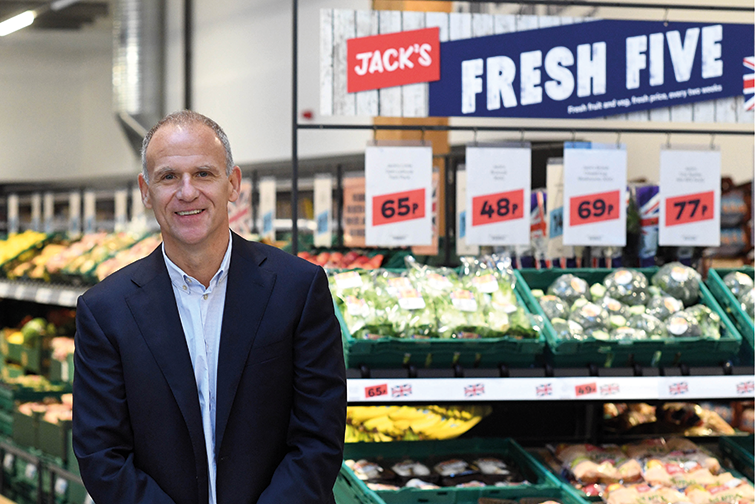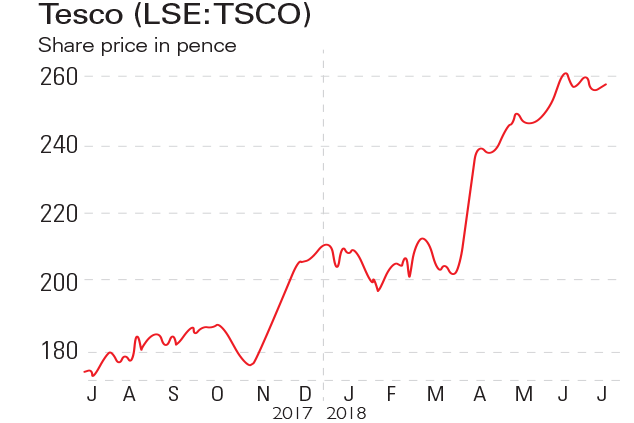Tesco wields the axe
Britain’s biggest supermarket is cutting back on staff and fresh food. Will the move prove counterproductive? Matthew Partridge reports.

Get the latest financial news, insights and expert analysis from our award-winning MoneyWeek team, to help you understand what really matters when it comes to your finances.
You are now subscribed
Your newsletter sign-up was successful
Want to add more newsletters?

Twice daily
MoneyWeek
Get the latest financial news, insights and expert analysis from our award-winning MoneyWeek team, to help you understand what really matters when it comes to your finances.

Four times a week
Look After My Bills
Sign up to our free money-saving newsletter, filled with the latest news and expert advice to help you find the best tips and deals for managing your bills. Start saving today!

Tesco, Britain's biggest supermarket, is cutting back on staff and fresh food.Will the move prove counterproductive? Matthew Partridge reports.
"Tesco staff must be finding it tough to smile at customers," says James Moore in The Independent. Up to 15,000 of them are set to lose their jobs. Most of the cuts will take place as a result of eliminating the grocer's fresh food counters: the in-store butchers, bakers, and fishmongers. Yet "restoring the relationship with customers, and improving the service they received, was one of CEO Dave Lewis's early priorities and successes".
The cuts are understandable, given Lewis feels he "has got to keep the profit margin promises he's made to the City", says The Guardian's Nils Pratley. And he has a point when he talks about the market being "competitive and challenging". But it is "hard to believe" Lewis, who was appointed four years ago, "intended still to be swinging the axe so vigorously in 2019". In that respect, "the financial revival of Tesco has been a disappointment", so it's no surprise the troubled supermarket's share price "is where it was when the £4m-a-year boss arrived in 2015 to savethe day".
MoneyWeek
Subscribe to MoneyWeek today and get your first six magazine issues absolutely FREE

Sign up to Money Morning
Don't miss the latest investment and personal finances news, market analysis, plus money-saving tips with our free twice-daily newsletter
Don't miss the latest investment and personal finances news, market analysis, plus money-saving tips with our free twice-daily newsletter
Lewis should be wary of cutting too deeply, says Andrea Felsted on Bloomberg. It could be "detrimental to the overall customer experience". Indeed, without the counters he is planning on removing, there is little to mark Tesco out from smaller rivals and the German discounters.
He should also learn the lesson from Sainsbury's attempts to cut costs, which culminated in "leaving shelves empty" during last summer's heatwave. It's also interesting that rival Morrisons is taking the opposite approach, "bolstering its fresh and prepared food counters, making them more of a feature".
Bosses under scrutiny
The planned cuts aren't the only reason Tesco is under scrutiny. Last week three Tesco executives were acquitted by a criminal court over the supermarket chain's £250m accounting scandal. As nobody has been convicted, this raises "serious questions" about why Tesco agreed a £129m plea bargain with the Serious Fraud Office, say Jonathan Eley and Jane Croft in the Financial Times. Lewis was perhaps "too quick" to accept that the supermarket was at fault by signing the deferred prosecution agreement (DPA), which allowed the company to escape criminal prosecution in return for the fine.
Nevertheless, says Oliver Shah in The Sunday Times, the fact remains that "Tesco overstated its profits by pulling forward commercial income", which resulted in the company misleading stock and bond markets. It's hard "to see how that isn't fraud". Tesco's then-CEO Philip Clarke and chairman Sir Richard Broadbent created a "toxic culture where employees scrabbled to produce the numbers"; no single person set out to do wrong. This helps explain "how Tesco... can be guilty while the three executives were acquitted".
Bitter blow as Fuller's is turning Japanese

After 174 years of brewing beer in London, Fuller, Smith & Turner has left analysts and beer-lovers alike "dumbfounded", say Zoe Wood and Jasper Jolly in The Guardian. It has accepted a "blockbuster" £250m offer for its drinks business from the Japanese beer group Asahi.
Asahi has been on a buying spree in recent years, with the Tokyo-listed drinks firm, currently the seventh largest in the world, having scooped up the Peroni, Grolsch and Meantime brands. Fuller's now plans to concentrate on its pubs (which the brewery will continue to supply) and hotels.
"Nostalgic Londoners" may bemoan the fact that the iconic London Pride brand is now in Japanese hands, says Lex in the Financial Times. But shareholders can "raise a goodbye glass to a division
that had become a drag on profitability". Higher costs and competition from craft beer had squeezed margins. Asahi is also paying a "premium" price for the brewery, which will help the group expand while maintaining the lowest ratio of net debt to earnings in the sector. With Fuller's pubs located in affluent areas, those "looking to pick up some premium shares at a pint-sized price" should take a look at it.
The deal is another "nail in the coffin" for the "vertically integrated" model whereby brewers produced beer and then sold it in pubs they owned, says Sky News's Ian King.
The only big firms that still brew and run pubs are Marston's and Greene King. But after the "spike in Fuller's shares it would be remarkable" if "they were not giving some thought to offloading their brewing arms too".
City talk
When it was founded back in 2010, Metro Bank was a "breath of fresh air" with its promises of "seven day opening and... to put the customer first", saysJames Moore in the Independent. However, the fact that underlying earnings for 2018 are apparently now set to come in at £50m, not £59m, means it is "suddenly looking a lot less feisty than it was". The bank has also admitted it made some mistakes in calculating its loan exposure, so it "maynow need a cash call to strengthen its capital buffers". The managers "are going to have to come up with some good answers".
In the past, Marks & Spencer (M&S) enjoyed "enviable growth" due to steady footfall in its food halls and Simply Food convenience stores, says Deirdre Hipwell in The Times. But it's become clear that "more shoppers want to buy everything online, including their evening meal or weekend party food". As a result, M&S has been in talks with Ocado about a potential collaboration. It may be clear what M&S would gain from "a fast-track route to online food delivery", but what's in it for Ocado?
Delivering "ever larger numbers" of parcels is easy enough for Royal Mail, "but delivering cost savings and productivity gains is proving rather more difficult", says Matthew Vincent in the Financial Times. There's also the problem that the volume of addressed letters fell by 8% in the last nine months of 2018. These results mean shareholders' patience is likely to start "wearing thin", given they've been waiting for CEO Rico Black "to deliver on costs and productivity" for some time. This bad news comes after the group had to write off £68m from a botched attempt to expand in the US. Black "needs to come up with the goods quickly".
Get the latest financial news, insights and expert analysis from our award-winning MoneyWeek team, to help you understand what really matters when it comes to your finances.

-
 Can mining stocks deliver golden gains?
Can mining stocks deliver golden gains?With gold and silver prices having outperformed the stock markets last year, mining stocks can be an effective, if volatile, means of gaining exposure
-
 8 ways the ‘sandwich generation’ can protect wealth
8 ways the ‘sandwich generation’ can protect wealthPeople squeezed between caring for ageing parents and adult children or younger grandchildren – known as the ‘sandwich generation’ – are at risk of neglecting their own financial planning. Here’s how to protect yourself and your loved ones’ wealth.
-
 How to profit from rising food prices: which stocks should you invest in?
How to profit from rising food prices: which stocks should you invest in?Tips Food prices are rising – we look at the stocks to avoid and the one to invest in this sector.
-
 Tesco looks well-placed to ride out the cost of living crisis – investors take note
Tesco looks well-placed to ride out the cost of living crisis – investors take noteAnalysis Surging inflation is bad news for retailers. But supermarket giant Tesco looks better placed to cope than most, says Rupert Hargreaves.
-
 Tesco sells its retail subsidiary in Thailand and Malaysia for £8bn
Tesco sells its retail subsidiary in Thailand and Malaysia for £8bnNews Tesco has agreed to sell its southeast Asian operations to Thai conglomerate Charoen Pokphand for £8.2bn in cash.
-
 Tesco should keep its Asian assets
Tesco should keep its Asian assetsOpinion The £7bn that Tesco could get for its Tesco Lotus business in Asia looks enticing. But holding on to it would be smarter, says Matthew Lynn.
-
 If you'd invested in: Tesco and Associated British Foods
If you'd invested in: Tesco and Associated British FoodsFeatures Tesco has seen its market value rise almost 50% in a year, while AB Foods has seen shares slide despite a rise in profits.
-
 What's behind Tesco’s alliance with Carrefour?
What's behind Tesco’s alliance with Carrefour?Features Tesco is clubbing together with French rival Carrefour to bulk buy own-label goods in an effort to cut costs. Will it succeed? Ben Judge reports.
-
 Lessons from Tesco’s turnaround
Lessons from Tesco’s turnaroundOpinion Retailers have it tough, but Tesco has shown that it’s still possible to thrive, says Matthew Lynn.
-
Three ugly ducklings to buy now
Opinion Alasdair McKinnon of the Scottish Investment Trust tips three bargain British stocks to tuck away in your portfolio.